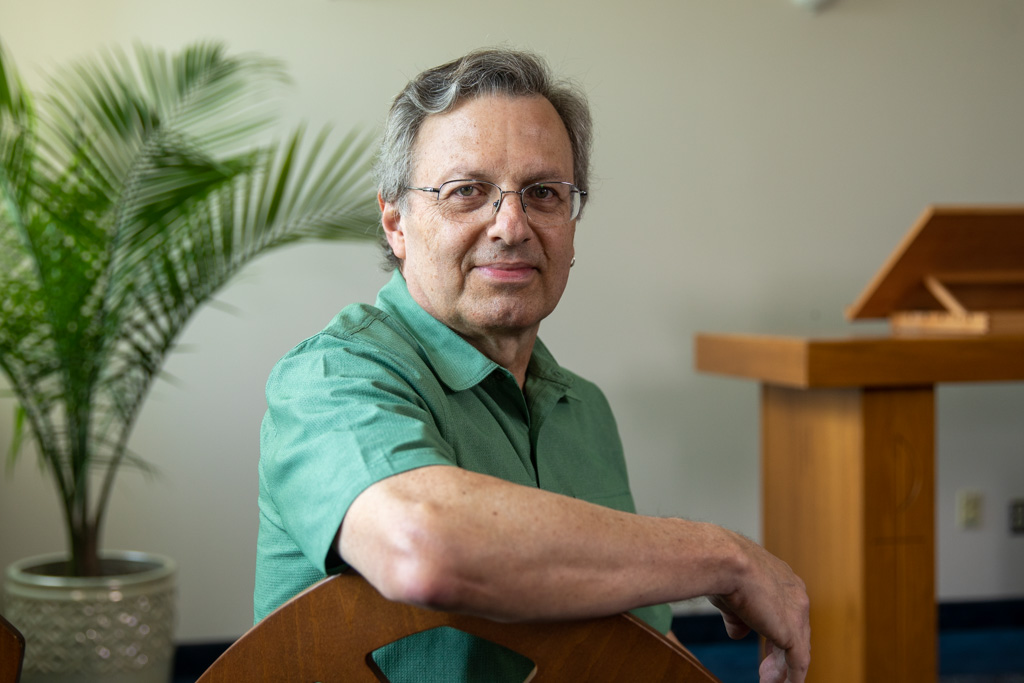Eschatology and Ecofeminist Theology: The Challenge of Preaching the "New Creation" in a Time of Environmental Crisis

A guest post by Leah D. Schade, a presenter at the New Creation conference
For preachers, eschatological themes are anticipated with nearly as much enthusiasm as dental check-ups. “The end of the world . . . again,” quipped one pastor at a pericope study I once attended as we tackled once more the images of the end-times that proliferate in the last Sundays of Pentecost and the first Sundays of Advent. This sarcasm perhaps masks a deeper unease about the real fears alluded to in passages such as Revelation 21:1-5 whose warnings of impending cosmic upheavals ricochet sharply off contemporary headlines about war, natural disasters, and strange “signs” that warn of dire days ahead.
Add to this the disconcerting news about species extinctions, the climate crisis, football-field-lengths of forests disappearing by the hour, and extreme forms of energy extraction, and the task of preaching “good news” in the face of seemingly immanent ecological doom can feel overwhelming to pastor and congregation alike. Especially for the preacher, the dual temptations to either legalistically preach about “saving the earth” or to irresponsibly encourage waiting passively for a messianic solution can lead to an “apocalyptic either/or logic—if we can’t save the world, then to hell with it. Either salvation or damnation,” as Catherine Keller observes.[1]
 Consider this: one possible approach to eschatological preaching that is sensitive to ecological issues is to preach passages that promise “a new heaven and earth” and “a new creation” through Keller’s ecofeminist theological lens. Her “third way” for understanding beginnings, endings, and the apocalyptic revealing of Christ’s redemption for all Creation may provide an antidote for counteracting eco-eschatological gloom-and-doom. Keller’s tehomic theology yields insights and heuristic possibilities for ecologically-oriented proclamation that engenders hope and invites deep and joyful engagement with God’s New Creation.
Consider this: one possible approach to eschatological preaching that is sensitive to ecological issues is to preach passages that promise “a new heaven and earth” and “a new creation” through Keller’s ecofeminist theological lens. Her “third way” for understanding beginnings, endings, and the apocalyptic revealing of Christ’s redemption for all Creation may provide an antidote for counteracting eco-eschatological gloom-and-doom. Keller’s tehomic theology yields insights and heuristic possibilities for ecologically-oriented proclamation that engenders hope and invites deep and joyful engagement with God’s New Creation.
With the Lutheran ecotheology of preaching as a base we can compare and contrast the approaches to eschatology offered by H. Paul Santmire and Rosemary Radford Ruether. Moreover, in the spirit of contextualizing our preaching, one can attend to the secular voices of environmentalists and their views on the future of our planet. This allows us to explore Keller’s work as a method for preaching an eco-eschatological sermon. And, keeping an eye toward practical theology, suggestions for how preachers may craft ecologically-oriented eschatological sermons begin to emerge.

Leah D. Schade is pursuing a Ph.D. at The Lutheran Theological Seminary at Philadelphia and presented a scholarly paper on this topic at the New Creation: Scripture, Theology and Praxis Symposium hosted by Northeastern Seminary, October 2013. She blogs at http://ecopreacher.blogspot.com/.
[1] Catherine Keller, Apocalypse Now and Then : A Feminist Guide to the End of the World (Boston: Beacon Press, 1996), 14.
.png?width=1920&height=1080&name=dual%20logo%20(2).png)

